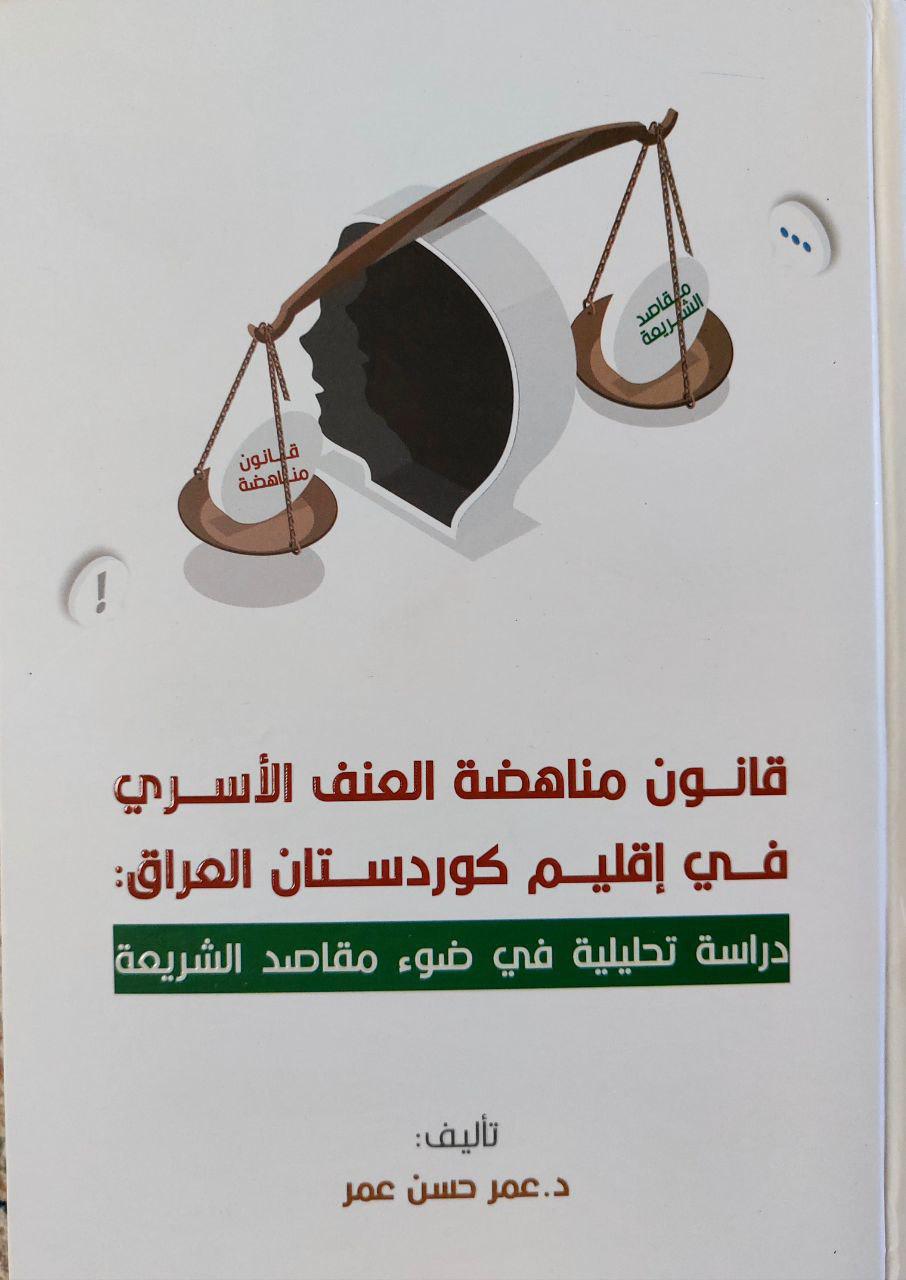
2025-06-11
A Soran University Lecturer Publishes a Book
In his latest scientific and academic work, Dr. Omar Hassan Omar, a lecturer in the Law Department - Faculty of Law, Political Science and Administration at Soran University, has published a book titled "The Law Against Domestic Violence in the Kurdistan Region of Iraq: An Analytical Study in Light of the Objectives of Islamic Sharia" in Arabic. This represents the first doctoral thesis on "The Law Against Domestic Violence in the Kurdistan Region of Iraq No (8) of 2011" from the perspective of the objectives of Islamic Sharia.
This book is fundamentally a doctoral dissertation, in which the author provides analysis and examination of the concept of domestic violence and its treatment, as manifested in the "Law Against Domestic Violence in the Kurdistan Region of Iraq," from the perspective of the objectives of Islamic Sharia.
In his book, the author questions the intent of certain articles and texts within this law, relying on Islamic Sharia texts and their aims and objectives, and drawing upon official data and statistics on domestic violence in Kurdistan, as well as interviews with relevant parties. The study examines how some provisions of this law have an impact on creating violence and the breakdown and dissolution of Kurdish families, due to their inconsistency with Islamic Sharia and its aims and objectives. The author argues that these provisions need to be reconsidered and amended to align and harmonize with Islamic Sharia and its principles.
At the conclusion of this book, the author presents findings showing that despite the existence of several legal deficiencies within the law, some of its provisions have negative and harmful effects on the fabric of the family, sometimes leading to their breakdown and dissolution. Therefore, the author recommends amending the law by legislators and Islamic scholars so that it aligns with the fundamental and unchanging principles of Islamic Sharia and its aims and objectives for addressing and confronting domestic violence. This should also rely on other protective factors through the implementation of educational and training programs to limit and prevent this phenomenon, rather than relying solely on legal remedies.
It is worth noting that this book is currently available in several libraries in Erbil and Soran.

